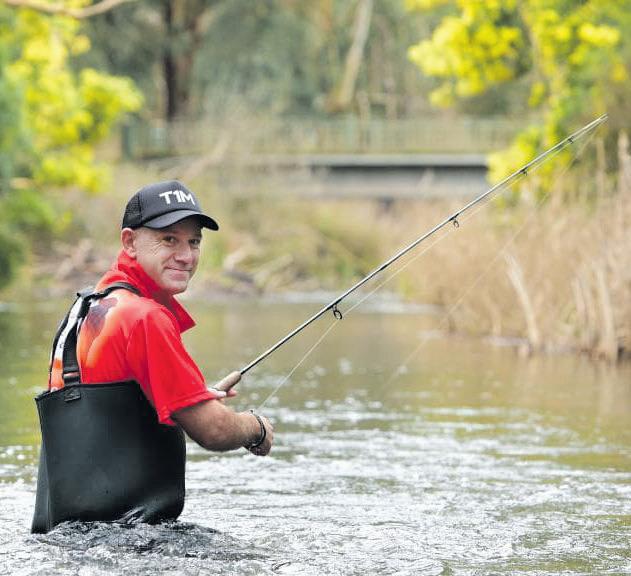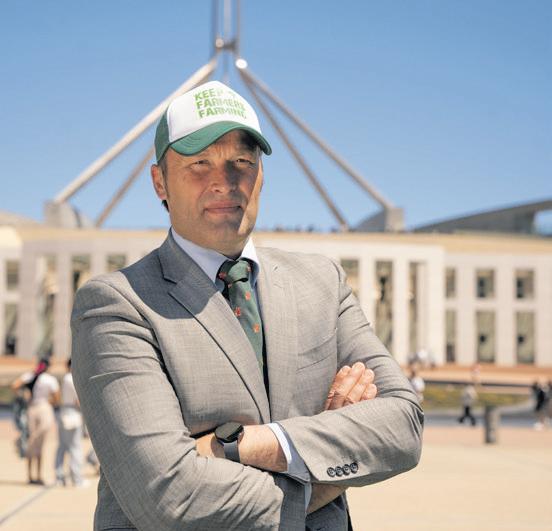
3 minute read
More Australian businesses can now access R&D funding from CSIRO
More Australian small businesses can now access research and development (R&D) funding and expertise through Australia’s national science agency, as CSIRO broadens its Kick-Start program.
The program has now been expanded with an increase in eligibility to include businesses with a turnover of up to $10 million.
This marks a significant increase from the previous eligibility of companies with a turnover of up to $1.5 million.
The CSIRO KickStart program assists Australian small to medium enterprises (SMEs) and scale-ups by providing facilitation and dollar-matched funding to access CSIRO’s research expertise and capabilities for company-led R&D projects.
Since its inception in 2017, the CSIRO KickStart program has been a catalyst for over 260 small business projects, contributing just under $24 million in R&D activities. Collectively, these companies now hold a market value exceeding $2 billion.
Dr Doug Hilton, CSIRO’s newly appointed Chief Executive, said the expansion of the program underscored CSIRO’s commitment to create benefit for Australia by supporting Australian entrepreneurship and innovation.
“CSIRO can absolutely play a role in supporting SMEs to embrace research and in stimulating entrepreneurship among our scientists and others in the community,” Dr Hilton said.
“Expanding the eligibility of the CSIRO the CSIRO Kick-Start program connects visionary businesses with cutting-edge science and technology.
Key elements of the program include:
• Facilitation to help refine the research question
• Connecting businesses with relevant CSIRO researcher expertise and capability - think of us as your in-house R&D division
• Dollar-matched funding support to improve the affordability or expand the scope of and SMEs face barriers, such as limited expertise and insufficient funding, that hinder R&D access.
“Our program serves as a driver for change, providing comprehensive facilitation to overcome these challenges.”
Eyes of AI (EAI), a Sydney-based company, recently achieved groundbreaking progress in dental x-ray analysis and pathology detection in collaboration with CSIRO researchers, made possible through the CSIRO Kick-Start program.
Dr Sen Le, co-founder of EAI, dentist, and multiple practice owner expressed enthusiasm for the program.
“Thanks to Kick-Start, EAI’s award winning dental software sets a new standard in radiograph analysis,” Dr Le said.
Kick-Start program means we can offer more Australian businesses, more Australian innovators, more Australian entrepreneurs’ access to the resources, knowledge, and support they need to flourish.”
From AI-powered tech to native skincare, hydrogen prototypes to Indigenous farming,
R&D services
Dr Megan Sebben, CSIRO’s Kick-Start Program Manager, explained the program’s role in accelerating technologies to market.
“In today’s rapidly evolving business landscape, innovation is the lifeblood of success,” Dr Sebben said.
“Yet, many start-ups
“Being able to harness the AI and imaging expertise of CSIRO’s Data61 team, a global leader in the field, is both an honour and an exciting development for our company.”

Find out more, or submit an expression of interest. https://www. csiro.au/en/work-with-us/ funding-programs/SME/ CSIRO-Kick-Start/about
With the Australian population ageing, chronic disease is on the rise. Living with chronic conditions can have a substantial impact on an individual’s health, affect their quality of life and can impact their participation in the workforce.2
In 2022, the Australian Institute of Health and Welfare (AIHW) reported that chronic conditions are an ongoing cause of considerable burden and disability in Australia.
It estimated that almost half (47%) of Australians had at least one common chronic condition and a quarter (25%) of people aged 15–44 had chronic mental and behavioural conditions.
For many people, their condition and resulting treatment may prompt them to reconsider next steps in their career. Moreover, changes in physical capability, mental capability, or the length of time away from work, may make returning to a previous role more difficult.3
As someone who lives with a chronic health condition and successfully returned to the workforce, Morningside resident, Matthew, knows firsthand how difficult it can be.
Matthew, now aged 20 years old, is one of the 11.6 million Australians who live with a chronic health condition, living with multiple mental health conditions, including Post Traumatic
Stress Disorder and Borderline
Personality Disorder.
Managing the symptoms of these conditions for much of his life, Matthew was advised to get in touch with atWork Australia after his recent diagnosis, where he was connected with a Job Coach for support.
“My Job Coach has been really understanding of my health conditions. He has made me feel supported throughout the whole process. He treats me like a human being and understands that I can struggle with brain function and memory loss. He really makes an effort to work with me to make employment feel manageable,” Matthew said. atWork Australia believes that work is for everyone, recognising the importance of working alongside employers to connect them with eager and job-ready candidates like Matthew.
Through support and mentorship, Matthew began to build the confidence he needed to take the next steps to secure employment. Working collaboratively with Matthew, his Job Coach helped him to identify his key skills, what relevant experience he had, and what his main interests were.
Matthew is now job ready and working with his Job Coach to find work that fits his skills, experiences, and interests.















